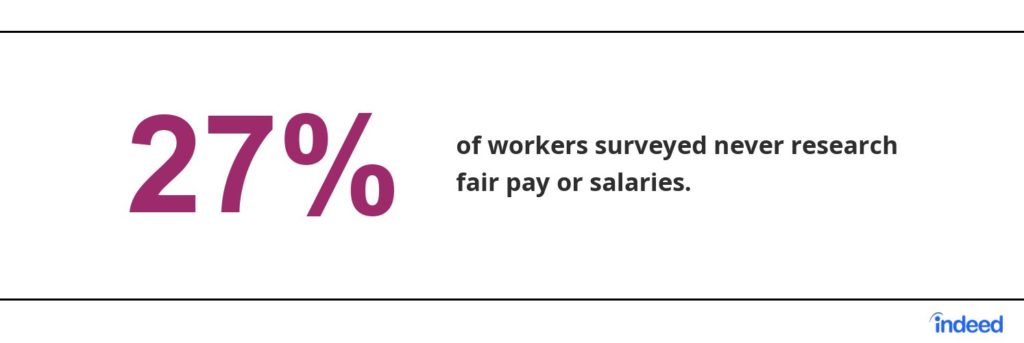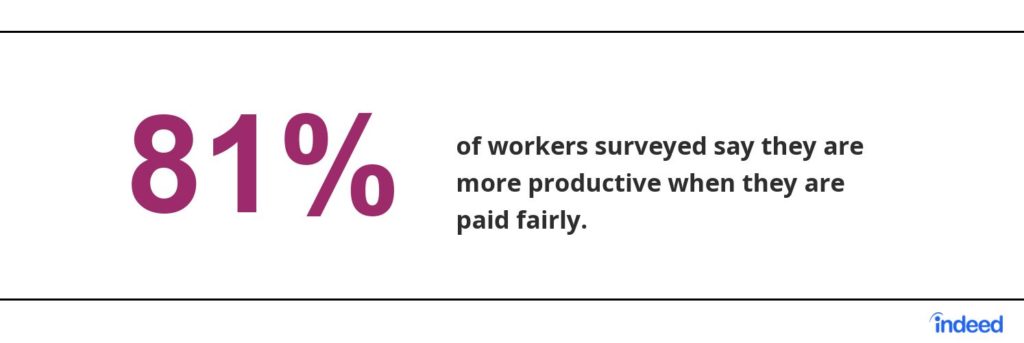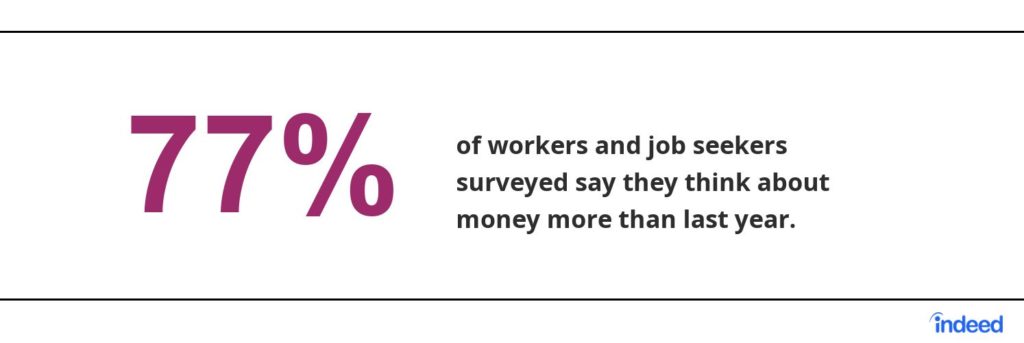Indeed IWD 2021 Flagship event explored how job seekers can better understand fair pay
April 08, 2021

Indeed, the worldwide employment website where you can search millions of jobs to find the next step in your career, marked International Women's Day 2021 via an engaging Flagship Event.
The event saw an informative discussion about fair pay, and Indeed's "A Piece of the Pie: Understanding the Importance of Fair Pay" report was discussed.
Empowering job seekers to understand the landscape of fair pay
It’s a simple fact: employees want to know they’re being paid fairly for their work. But where can they find this information, and once they have it, how do they use it?
Indeed supports fair pay by empowering job seekers with tools like a salary calculator and encouraging employers to include salary information in job postings.
To better understand the landscape of fair pay, Indeed surveyed 1,500 U.S. workers from across a variety of industries and career levels in December 2020. In this report, Indeed takes a closer look at how workers research fair pay, what they do with this information and how they think COVID-19 might impact compensation moving forward.
Over 70% of workers research fair pay, but their methods vary
Although 66% of workers surveyed say they are paid fairly in their current roles, a closer look at the data reveals a more complex situation. While 30% of men strongly agree they are paid fairly, only 15% of women say the same.
Similarly, 18% of Black workers surveyed strongly disagree they are paid fairly at their jobs, compared to 6% of white workers. Together, these differences highlight the ongoing role that race and gender play in fair pay—and the importance of ensuring equal access to salary data.
One thing is clear: most workers and job seekers want to know where they stand. Seventy-four percent of respondents conduct research about fair pay. For some, it’s an ongoing concern: over one-fifth (22%) research salaries in an ongoing manner. Interestingly, men are more likely to conduct continuous research on fair pay: 27% say they do this, compared to only 18% of women.
Other respondents rely on more targeted research, digging into salary data before applying for a new job (29%), preparing for a performance review (12%) or considering whether to ask for a raise (10%). Significantly, over one-fourth (27%) never research fair pay or salaries.

Respondents use different sources to learn about fair pay. Twenty-six percent turn to data and salary toolsfrom online job sites like Indeed, while 22% gather salary information directly from job postings. Fifteen percent look at industry-specific websites, others ask friends (12%) or coworkers (10%) and 10% use government data.
Job seekers 68% more likely to apply for a position if it lists pay
Respondents cite different reasons for researching pay. Twenty-seven percent research salaries simply to find out if they’re being paid fairly, while 19% want to see where they stand compared to other jobs. Meanwhile, 19% want to understand their earnings potential, 18% research pay to prepare for salary negotiations and 17% use the information to decide whether to change jobs entirely.
On the employer side, providing fair pay and salary transparency aren’t just the right things to do—they’re valuable tools for talent attraction.
Indeed’s research finds that applicants are 68% more likely to apply for a position if the salary range is listed in the description and 60% more likely if the company publishes transparent salary bands for all jobs.
When it comes to pay, employers would be wise to put their best face forward: job seekers are 75% more likely to apply for a job if a company has a reputation for paying fairly.
Workers wary of discussing their pay, say salary talk remains taboo
Despite a desire to be informed about fair pay, many respondents say they do not discuss their own salary information.
Sixty-six percent have never shared their salaries on a job site, only half have shared them with friends and 60% say they have never asked a coworker about pay. Notably, 44% of men report having shared their salary information with a coworker, compared to only 31% of women, suggesting that men are somewhat more likely to speak openly about pay.
But why are people so hush-hush when it comes to their salary information? Over one-fifth (21%) say it feels taboo to discuss pay, with the same number reporting that they don’t want to create drama at work. Along similar lines, 14% worry about getting in trouble with their superiors, despite the fact that all workers are allowed to discuss their pay.

This wariness around money talk can impact workers from the beginning of a new role. Over half (58%) say they never or rarely negotiate their pay—and, notably, although 15% of men say they always negotiate a new salary, only 9% of women do this.
Respondents cite a variety of reasons for not negotiating their salaries: 27% felt the offer was fair; 21% didn’t know how to negotiate; and 19% were worried the employer would retract the offer. Tellingly, 41% of women say salary negotiations make them very or somewhat uncomfortable, compared to only 21% of men.
Fair pay leads to higher engagement and fulfillment, less churn
Fair pay isn’t just money in the bank for workers; it’s also a strategic way to retain talent and maintain output.
In fact, 82% of workers feel more engaged with and fulfilled by their work when they are paid fairly, and 81% of respondents say they are more productive and loyal to their employers.

In contrast, unfair pay is bad for both morale and retention. Fifty-six percent of respondents agree that unfair pay makes them feel undervalued. Among those who have found out they were earning less than coworkers with the same experience or title, over half (54%) reported a subsequent drop in motivation and 59% looked for a new job within a year.
Curiously, most workers did not seek answers once they learned they weren’t being paid fairly: only 23% discussed it with their managers and 12% went to HR. What’s more, their outcomes varied significantly by gender: while 66% of men who met with their managers or HR had their salaries adjusted accordingly, only 43% of women who took that step got the desired results.
As for workers who did not take action, their reasons varied: 46% remained silent because they felt speaking up wouldn’t change anything, while 23% feared retaliation.
COVID-19 perceived to have long-lasting impacts on pay
COVID-19 has transformed many facets of the world of work, and over three-quarters (77%) of workers say they think about money more than they did last year. One-third (33%) believe their earning potential has been severely impacted by the pandemic, and an additional 31% fear it has been at least slightly impacted.

Respondents cite various causes for concern. Nearly one-third (30%) work in an industry that has been largely reduced or eliminated by the pandemic, such as leisure and hospitality. Meanwhile, 20% worry they now have less leverage to negotiate a good salary due to increased competition among job seekers in their sectors.
Importance of fair pay to remain top-of-mind for workers and employers alike
When it comes to fair pay, workers and job seekers want to know where they stand—and employers have a vested interest in providing this information.
Indeed’s data shows that the majority of workers already research salary data and use their findings to make informed decisions. Although talking about salaries remains somewhat taboo, many workers turn to online job sites, posted salary ranges in job ads or other resources to educate themselves about their earnings—and their longer-term potential.
For employers, fair pay and salary transparency aren’t just noble aims—they are proven strategies to attracting and retaining talent while also encouraging higher engagement and productivity.
Although COVID-19’s full impact on the world of work remains to be seen, vaccines provide a light at the end of the tunnel. As employers prepare for an uncertain year ahead, prioritizing fair pay and salary transparency can help nurture workers now—and pave the way for a brighter and more equitable future for all.
Written by Indeed writer and marketer, Kristy Threlkeld.